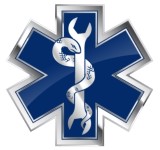 Back to Home Need Help? Click the Ask a librarian link on the Online Library home page!
Back to Home Need Help? Click the Ask a librarian link on the Online Library home page!
|
These guides are here to help students and faculty. Information includes: - Videos Both Fun and Instructional - Reliable Websites to Support One’s Program of Study / Field - Terminologies, Blogs, Tutorials, Professional Organizations, & More
|
Diesel Mechanics Tools & Resources
Blogs

- Auto Blog - Everything Auto!
- The Wicked Diesel Blog - Check out the Wicked Diesel Blog for the latest in the world of diesel automotive technology, WickedDiesel events, and more!
- Mechanics Hub - Mechanics Hub is North America’s largest specialty recruiter for diesel machinery professionals, related trade professionals and the companies that employ them. Also access videos, pictures, articles, tips and tricks, and other great information here.
RSS Feeds

- Diesel Terminology- Glossary of terms and acronyms
- DieselNet- More Terms and acronyms. Browse the glossary
- Alphabetical Glossary of Automotive Terms- The definitions included in this Glossary reflect the manner in which these terms are used on the Edmunds.com website, which in some instances may differ from their meaning in other contexts.
Diesel Industry News Sites
-
Fleet News DailySee news about parts and equipment, including tires, fuel, and electronics. Check out the "Fleet Maintenance" section.
-
Government Fleet NewsNews and feature stories about vehicles and equipment used by government agencies.
-
HDT Trucking Info.comHDT = Heavy Duty Trucking. Safety, maintenance, equipment, and new products.
2017 Engines
Jason Morgan of Fleet Equipment magazine describes what we need to know about 2017 model year engines, including oil recommendations, over-the-air (OTA) engine updates, and diagnostics.
What Diesel Service Technicians and Mechanics Do
Diesel service technicians (also known as diesel technicians) and mechanics inspect, repair, and overhaul buses and trucks, or maintain and repair any type of diesel engine.
Work Environment
Diesel service technicians and mechanics usually work in well-ventilated and sometimes noisy repair shops. They occasionally repair vehicles on roadsides or at worksites. Most diesel technicians work full time, and overtime and evening shifts are common.
How to Become a Diesel Service Technician or Mechanic
Although most diesel service technicians and mechanics learn on the job after a high school education, employers are increasingly preferring applicants who have completed postsecondary training programs in diesel engine repair. In addition, industry certification may be important.
Pay
The median annual wage for diesel service technicians and mechanics was $46,360 in May 2017.
Job Outlook
Employment of diesel service technicians and mechanics is projected to grow 9 percent from 2016 to 2026, about as fast as the average for all occupations. Job prospects should be best for those who have completed postsecondary training in diesel engine repair.
State & Area Data
Explore resources for employment and wages by state and area for diesel service technicians and mechanics.
Similar Occupations
Compare the job duties, education, job growth, and pay of diesel service technicians and mechanics with similar occupations.
More Information, Including Links to O*NET
Learn more about diesel service technicians and mechanics by visiting additional resources, including O*NET, a source on key characteristics of workers and occupations.








